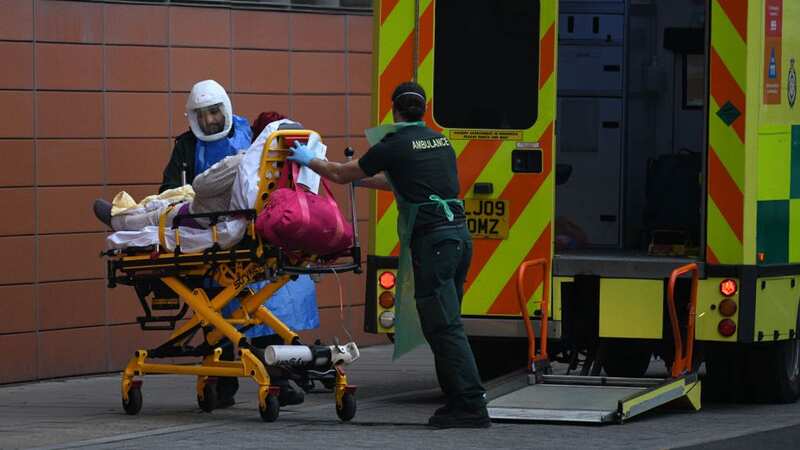WHO warns of new 'unpredictable' Covid strain as hospitals on brink of collapse

The new variant of coronavirus is highly volatile and could wreak havoc if the government fails to properly address the threat, according to the World Health Organisation.
Last week, it emerged that the new JN.1 variant had become the most dominant strain of Covid-19 on the planet after more than 10,000 people died from the virus last month. The strain is a mutant form of Omicron, which first hit UK shores in Christmas 2021.
Experts fear that JN.1, which is thought to have rocketed in numbers due to festive socialising, could reach record levels in the UK in a matter of weeks if cases continue to rise.
Today, the world's health authority confirmed that it was also concerned about the recent proliferation of the strain, adding that it is highly volatile and unpredictable, and could be a real risk if not properly managed by relevant authorities.
At a press conference, WHO Regional Director for Europe, Dr Hans Henri P. Kluge explained that though it's not thought to be any more severe than recent strains, JN.1 should not be ignored.
 Baby boy has spent his life in hospital as doctors are 'scared' to discharge him
Baby boy has spent his life in hospital as doctors are 'scared' to discharge him
He told reporters: "A new SARS-CoV-2 variant of interest – known as JN.1 – is fast replacing other known variants. It’s now the most common variant being reported globally and is the dominant variant circulating in our region, accounting for 79 per cent of sequenced variants.
"Though there’s no current evidence to suggest the JN.1 variant is more severe, the unpredictable nature of this virus shows how vital it is that countries continue to monitor for any new variants. Many countries have reduced or stopped reporting on COVID-19 to WHO. I cannot stress enough how important continued COVID-19 surveillance is, alongside other circulating respiratory viruses.
"13 countries in our region did not report any data on respiratory viruses last week. Surveillance remains our first line of defense to monitor unpredictable respiratory pathogens, be it mutations or new viruses."
Scientists predicted Covid cases would reach new record highs by mid-January after JN.1 became dominant over Christmas. The data was drawn from the latest ONS and UK Health Security Agency (UKHSA) winter infection survey. The research, published on December 21, estimated on December 13, 2.54million people had Covid. That was more than double the amount seen at the start of December. Another warning said more than 100,000 Brits could develop Long Covid in coming weeks.
The eight symptoms of the JN.1 variant include:
Sore throat
Congestion
Runny nose
Cough
Fatigue
 Disabled woman paralysed after falling from wheelchair on plane walkway dies
Disabled woman paralysed after falling from wheelchair on plane walkway dies
Headache
Muscle aches
Fever or chills
Read more similar news:
Comments:
comments powered by Disqus

































